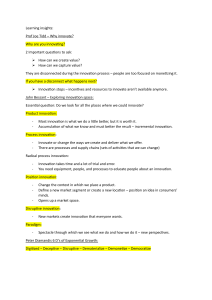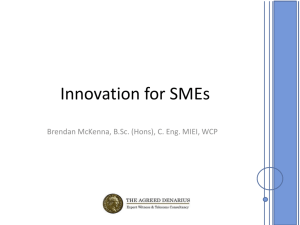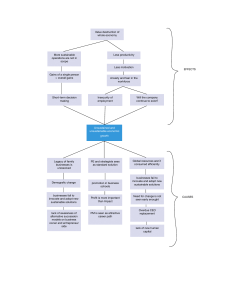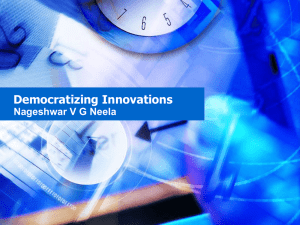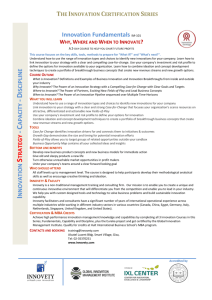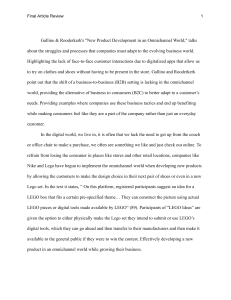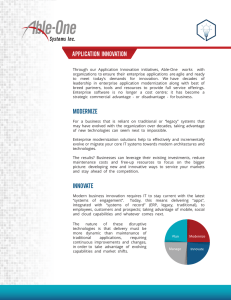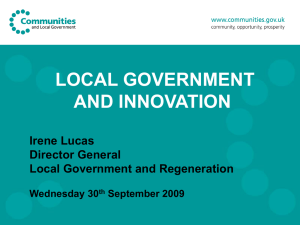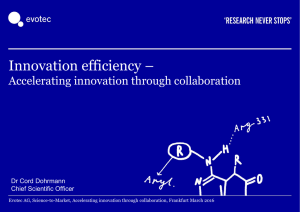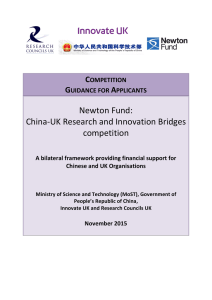Open Innovation How organizations innovate on products, services, technologies, and innovation
advertisement
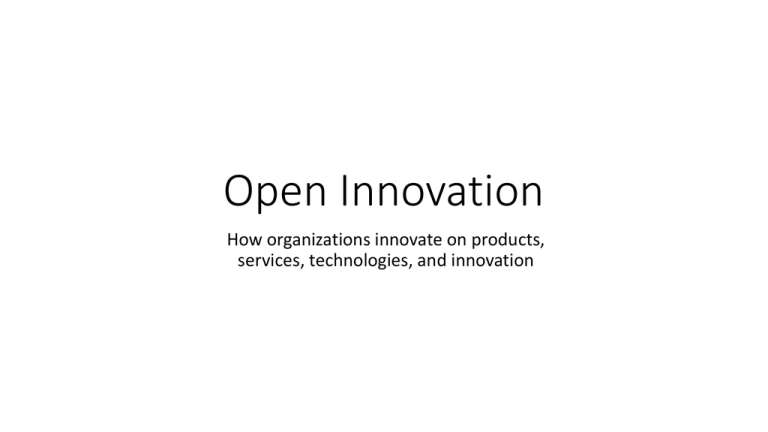
Open Innovation How organizations innovate on products, services, technologies, and innovation Henry Chesbrough “Conceptually, it is a more distributed, more participatory, more decentralized approach to innovation, based on the observed fact that useful knowledge today is widely distributed, and no company, no matter how capable or how big, could innovate effectively on its own.” “For business, open innovation is a more profitable way to innovate, because it can reduce costs, accelerate time to market, increase differentiation in the market, and create new revenue streams for the company.” GE • Ecoimagination challenges: draw out “great ideas on big issues” • FirstBuild: Partner with Local Motors to co-create a new world of home appliances • Core values • • • • Customer focus Accreditation & recognition Transparency (evaluation criteria, rules, compensation, IP rights) Continue to experiment, collaborate, and learn Samsung • Small teams of 5-6 people work on a project • Benefits of start-up environment • Autonomy • Nimbleness • Freedom to build • Benefits of belonging to large organization • Financial support • Distribution LEGO • Interview companies implementing open innovation • Input from 30 practitioners • Set up micro pilots to test capabilities, culture, and appetite • Utilize your consumer base Sources • 3 Successful Open Innovation Cases: GE, Samsung, and LEGO • Everything You Need to Know About Open Innovation
